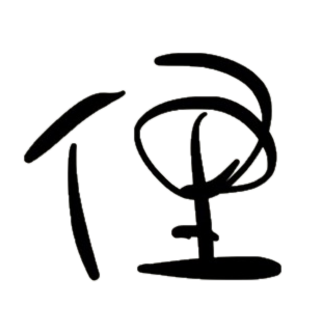Today, I reopened this book that I had researched for my first master's thesis. I bought this 2nd-hand book from De Slegte online store in good condition. However, I didn't notice there were a few pencil highlights from the former reader. Surprisingly, I just found all the highlights are important information today.
In the first chapter In Quest of Spirit: Thought on Music by Jonathan Harvey, at the beginning, he points out that music is beyond dualism and reflects subjective spiritual experience.
In an important sense, in fact, a dualistic subject/object distinction is inappropriate when dealing with music. For music is intimately concerned with transcending that dichotomy, with healing Descartes’s ontological separation of self and world and Kant’s epistemological separation of self and certain knowledge, both formative of today’s dominant paradigms.
Descartes claimed that the human mind requires the body to function, hence "I think, therefore I am." Kant believed that objects themselves exist without time and space, and humans interpret them into existence with time and space through mind.
In mind-body dualism, the mind is unobservable and does not occupy physical space, whereas the body is physical and occupies space. The mind is unseen and untouchable; the physical world, on the other hand, is visible and touchable. However, Jonathan Harvey argues that music cannot be defined in terms of dualism because it is a transcendental existence, a spiritual sublimation, and a personal subjective experience. I resonate with Harvey's argument that dualism does not explain spiritual and music experiences. How his Buddhist practice influenced his spiritual journey also relates me to Taoism which is deeply connected with my works. I will elaborate on how Taoism and the concept of beyond the binary play an important role in my Creation Philosophy.
In the Daotejing , Lao Tzu says that “Tao”(the Way) is the source and belonging of all things, eternal and unspeakable; all things are transient and keep changing, but Tao is everlasting. Both eastern and western philosophy question the origin of the universe and the value of human existence. However, in human cognition, all objects need to be thought through names and definitions; thus, relative comparisons are made, such as high vs. low, fast vs. slow, male vs. female, well-known vs. unknown, etc. On the other hand, Taoist philosophy views the world without dichotomies, although all things such as yin and yang are dependent on each other, they compensate and do not fall into subjective comparisons.
Zhuangzi's Autumn Waters chapter mentioned,from the perspective of Taoism, everything is equal in the universe. Without dualistic thought about everything, we would see all things equally. Both Buddhism and Taoism have the concept of "forget your ego". However, human nature has a strong ego, therefore it is a challenging concept to eliminate the ego and see all things equally. If we have the wisdom of Tao, we will understand ourselves, be aware of nature, grow ourselves, and then reach the state of “forget self” and unity with all things.
今天,我重新翻開了這本我在撰寫第一篇碩士論文時研究過的書。我從 De Slegte 線上書店以良好的狀況買到這本二手書。不過,我沒有注意到前一位讀者用鉛筆做了幾處重點標記。令人驚訝的是,今天我發現所有的重點標記都是重要的信息。
在第一章《尋求精神:喬納森·哈維對音樂的思考》中,提到的音樂哲思,反映了其超越二元的特質,而造就個人主觀的靈性經驗。
事實上,在某種重要意義上,當處理音樂時,二元的主體/客體區分是不合適的。因為音樂密切關係到超越這一二分法,治愈笛卡爾的自我與世界的本體論分離以及康德的自我與確定知識的認識論分離,這兩者都是今天主導範式的形成因素。
笛卡兒主張人的意識(mind,心)是需要身體(body,身)才能運作,因此「我思故我在」。康德認為物件本身的存在是沒有時間和空間,人類是透過意識才將其轉換成有時間與空間的存在。
在心靈-身體二元論中,心靈是不可觀察的,不佔據物理空間,而身體是物理的,佔據空間。心靈是看不見和觸摸不到的;而物質世界則是可見和可觸摸的。然而,喬納森·哈維認為音樂不能用二元論來定義,因為它是一種超驗存在,是一種精神昇華,是一種個人的主觀體驗。我對哈維的論點表示認同,認為二元論無法解釋精神和音樂體驗。他的佛教修行對其精神之旅的影響也使我聯想到道教,這與我的作品有著深厚的聯繫。我將詳細闡述道教和超越二元概念在我的創作哲學中所扮演的重要角色。
在《道德經》中,老子說「道」是萬物的根源和歸屬,永恆而不可言說;萬物是短暫且不斷變化的,而道是永恆的。東方和西方哲學都質疑宇宙的起源和人類存在的價值。然而,在人類認知中,所有的物體都需要通過名稱和定義來思考;因此,相對的比較就產生了,比如高與低,快與慢,男性與女性,著名與不著名,等等。另一方面,道家哲學則認為世界無二分法,儘管所有事物如陰和陽是互相依存的,它們是互補的而不是落入主觀比較。
莊子的《秋水》篇提到,從道家的角度看,宇宙中的一切都是平等的。如果沒有對萬物的二元思考,我們就會平等地看待所有事物。佛教和道教都有“忘我”的概念。然而,人性有強烈的自我,因此消除自我並平等看待一切是個挑戰性的概念。如果我們擁有道的智慧,我們將理解自己,意識到自然,成長自己,然後達到“忘我”和與萬物合一的境界。

